It’s easy to understand why One Thousand and One Nights – also known as 1001 Nights and Arabian Nights – has fallen out of vogue in modern culture and has rarely been touched in video games. There are dozens of games produced based on Romance of the Three Kingdoms, Grimm’s Fairy Tales, Lovecraft’s writings and the adventures of Sherlock Holmes, but the cultural hostility towards anything perceived to be “Middle Eastern” from the west means that any developer that takes a swing at an Arabian Nights setting will cost themselves sales (with the exception of the Aladdin games, of course, but those were a safe bet courtesy of the animated film and in this article we will be focusing on original games).
Related reading: On the fantasy harem costume and why it’s so popular in games.
Then there’s also the reality that most of the tales in One Thousand and One Nights are downright misogynistic, and that is something that many in the audience could not handle. Anyone who has read the book knows this. The very concept of it is a problem. The book is a collection of stories-within-a-story, and the story that frames it is the story of Scheherazade. She is married off to a king whose hobby is to marry a virgin every day, have sex with her, and then execute her the next day “before she can become unfaithful.” Scheherazade manages to avoid that fate by weaving such incredible tales that the King keeps her alive so that she can share a new one with him each night. Most of the stories that Scheherazade weaves are tales of manly heroism, and if there are women, those women are there to be raped, murdered, enslaved, or some combination of the three. Scheherazade knows her audience.
There’s no getting around the misogyny. A little like how you can enjoy Lovecraft and his brilliant creativity, but absolutely must acknowledge the downright malevolent racism of the man, there is a lot to admire about One Thousand and One Nights, but you absolutely must recognise that this is a collection of stories with real problems with women. With the games industry particularly sensitive to the treatment of women (and with excellent reason), it’s understandable that video game developers are very cautious about whether they want to tackle the subject.
Nonetheless, some have, and there have been some magnificent games that capture the positive side of the One Thousand And One Nights’ aesthetics and ethos. It’s important to remember that too; without excusing the treatment of women in these stories, there is also so much merit to them. The high fantasy of magic and genies. The swashbuckling adventures on the sea or over the sands. The exotic romance of the oasis and the glistening cities. There’s also a deep sensuality and sexuality that, when it’s not being tainted by the misogyny, is quite gorgeous. Arabian Nights is some very adult fantasy, but it’s unique and thrilling fantasy, and if you get a chance to play any of these games, you can enjoy a sense of it, too.
Al-Qadim: The Genie’s Curse
This is a Dungeons & Dragons game, but a little unusually for the time, it’s not really an RPG. It’s more akin to Zelda, with plenty of action combat, but very simple levelling systems (barely levelling at all), and a focus on exploration and puzzles rather than learning intricate combat systems. By doing that, it captures the spirit of Al-Qadim beautifully (Al-Qadim being the One Thousand And One Nights-themed Dungeons & Dragons world setting), as that setting was always about fluid, exciting adventure rather than grinding dice rolls.
You play as a young corsair, who is betrothed to a caliph’s daughter. However, a hurricane shipwrecks the caliph’s ship, and the daughter is thrown overboard. The young corsair is blamed for this and at risk of execution if he can’t work out what happened and what role the genies had to play in it.
This game offers a rich adventure, with gorgeous aesthetics that really stunned back in the DOS era, and still impresses from an art direction perspective today. With sands and scimitars, harem girls and shirtless heroes, and the chance to meet some truly deadly genies, Al-Qadim is a trip that you’re not going to soon forget. In fact, this was the game that first sold me on the whole setting and book. I was probably a bit young to be reading Arabian Nights back then, but growing up in country Australia, the fantasy that was on sale in the bookshop was only ever some variation of Tolkien and Tolkien’s pretenders. Here was something different. Something vibrant and exotic, and that difference made it something I became quite passionately interested in.
The game’s now available on GOG and Steam, and while the rough edges are certainly frustrating, the core of it remains as appealing as ever.
Magic Carpet
This is without a doubt the greatest game to have an Arabian Nights setting. Magic Carpet is an arcade-like first-person shooter, where you fly around small worlds, collecting spells, and then trying to kill enemies for golden balls of mana. Collect enough of those and you return that world to “equilibrium”, and can move on to the next (more difficult) one.
It’s hard to fully articulate just how appealing Magic Carpet is. The library of spells to unlock and use is massive, and opens up all kinds of tactical possibilities. Even by modern shooter standards, this arsenal is impressive. You can launch fireballs at enemies, sure, but why would you do that when you can instead summon an army of the dead and send them to attack enemy castles? That’ll mean the friendly locals suffer, since the undead will attack them as well and turn them into skeletons, but you’ve got a war to win with a rival wizard here.
Meanwhile, every enemy has its own quirks, from the swarming bee hordes, to the land-bound skeletal archers, the griffins (immune to every magic spell other than lightning), the mana- stealing genies, and the deadly wyverns. There are also rival mages to contend with.
“Most captivating of all, though, is the magic carpet that you sit on and cast your spells from. You’re limited in how high you can fly into the sky, but nonetheless, you can fly over buildings and the oceans, and you can set fire to a forest to burn all the enemies out, while you watch safely from a distance. The magic carpet is an iconic and distinctive part of the Middle Eastern fantasy, precisely because it promotes freedom and speed of movement, and in Magic Carpet you get both.
Unfortunately, Magic Carpet is all but done with. It was a Bullfrog production, and EA owns Bullfrog and its properties. EA, of all companies, is not going to touch something like Magic Carpet, and while there was some effort to get a spiritual successor off the ground a few years ago, nothing happened with that.
The original Magic Carpet Plus is available on GOG, however.
Prince of Persia: The Sands of Time
Of course, the whole Prince of Persia property is based on Arabian Nights mythology, but I’m choosing Sands of Time here because it is, by far, the best Prince of Persia game, and it does the setting the best justice.
It’s almost incredible how perfectly Sands of Time captures the aesthetics and tone of One Thousand And One Nights. Its fluid, graceful combat system, focused more on being flashy than particularly challenging, is spot on for the kind of swashbuckling adventure that you imagine comes with Aladdin or Ali Baba. The parkour-like movement through the palace of deadly traps speaks to an “Indiana Jones”-like journey into places of antiquity, and that is another common theme for the book. And then there’s the way that the palace that you explore and the characters that you meet are designed. It’s all spot on.
The theming is right too, with the Sands of Time being a powerful high-magic artifact (not unlike a genie’s lamp or magic carpet), and the potency and power of the device is like a beacon to the corrupt and the power-mad. This is such a key and recurring theme within the book, and it’s handled in this game just as the original stories would.
For the Prince of Persia series, what came after would lose the explicit qualities of the Middle Eastern setting, slowly becoming a more generic-style fantasy adventure (albeit one with a lot of sand a lot of the time) and the Prince of Persia property would eventually transition to become Assassin’s Creed, which isn’t about the fantastic at all. That slow decline of the property has been disappointing, but Sands of Time will forever be a special take on the specific qualities of the book.
The original version of Prince of Persia: The Sands of Time is available on GOG and Steam. Ubisoft India was developing a remake, but who knows if or even when that will happen now, given that it seems to be stuck in development hell (and development has moved to Ubisoft Montreal most recently). If it does get released, who knows whether it’ll be loaded with microtransactions and NFTs now, in true Ubisoft style
City of Brass
The Australian-developed City of Brass is the most modern game that has been explicitly inspired by Arabian Nights.
The City of Brass is a location depicted within the stories, and pops up from time to time when other authors use a fantasy Middle Eastern setting. It’s easy to understand why it would be so appealing, as a haunted and cursed city filled with imprisoned genies, untold treasures, and nightmares. Once again, there’s a strong Indiana Jones tone to a lot of the adventures in Arabian Nights, and the existence of the City of Brass is one of the better examples of this. I’m sure there’s an unmade script floating around Hollywood where Indy goes on a search for the City…
Anyhow, this game doesn’t do anywhere near enough with the storytelling, and I was hesitant to mention it here for that reason. It’s a roguelike in the truest sense, with randomised levels and enemies, and a complete focus on fighting them and making progress deeper into the city. Aside from some minor intrigue at what the various major enemies and items are called, there is simply no narrative, let alone storytelling, and you’re going to come away from this game disappointed if you were specifically looking for an Arabian Nights-style adventure.
On the other hand, City of Brass does get the aesthetics and presentation perfect. The enemies are the various beasties that you would expect to fight in an Arabian Nights game. You level up equipment and gain new powers by dealing with genies, and those times that you find a secret room filled with treasure is a joy.
I really do hope that at some stage a developer makes this kind of game, but with a stronger narrative, because it shows so much potential for what a modern Arabian Nights game could look and feel like.
If you’d like to check this one out, it’s readily available on modern Nintendo Switch, PlayStation, Xbox and PC consoles.
Defenders Of Oasis
Finally, we have Defenders Of Oasis, which takes my favourite genre, the JRPG, and fuses it with One Thousand And One Nights. Then it squeezes that incredible combination down into a format that runs on one of the most primitive handhelds ever. This is a Game Gear title, and given the limitations that the developers were working with, it gets everything right.
You play as a previously lazy and loutish prince who is tasked with preventing an evil empire from collecting a number of special rings and then using them to resurrect a dark God, Ahriman (an actual being in the Zoroastrian faith). He finds three other heroes to help him in this task (including a Jinn – a type of genie), and along the way explores the hideout of Ali Baba and the bandits, meets Sindbad, and adventures through a series of environments heavily inspired by the stories in the book.
The game suffers from all the problems of really old JRPGs – some major difficulty spikes, an over-efficiency in storytelling that leads to too-simple characterisation and worldbuilding, and some poor guidance on what the next objective is. However, there really is a bold vision to Defenders of Oasis, and the art direction is just gorgeous. It might not be the most detailed game on account of its platform, but it captures the colours and architecture of the fantasy Middle East in a way that makes it clear the developers researched the book and art around it closely.
The fact I have to stretch back to the Game Gear to find an authentic Arabian Nights JRPG is incredible. Japan loves the setting, and the high-magic fantasy of the genre is perfect for the RPG format. I know we’ve had other games that use a Middle Eastern setting (Final Fantasy XII, for example), but seriously, come on developers. Give us some more Arabian Nights.
While we wait for that, Defenders of Oasis did get a re-release on the Nintendo 3DS Virtual Console, so you can download and play it now before Nintendo takes that service offline shortly.
Please note: This article was originally published in the Dee Dee Zine. As we have ceased publication of that magazine, we have republished it here so all can read. Click here to read more.
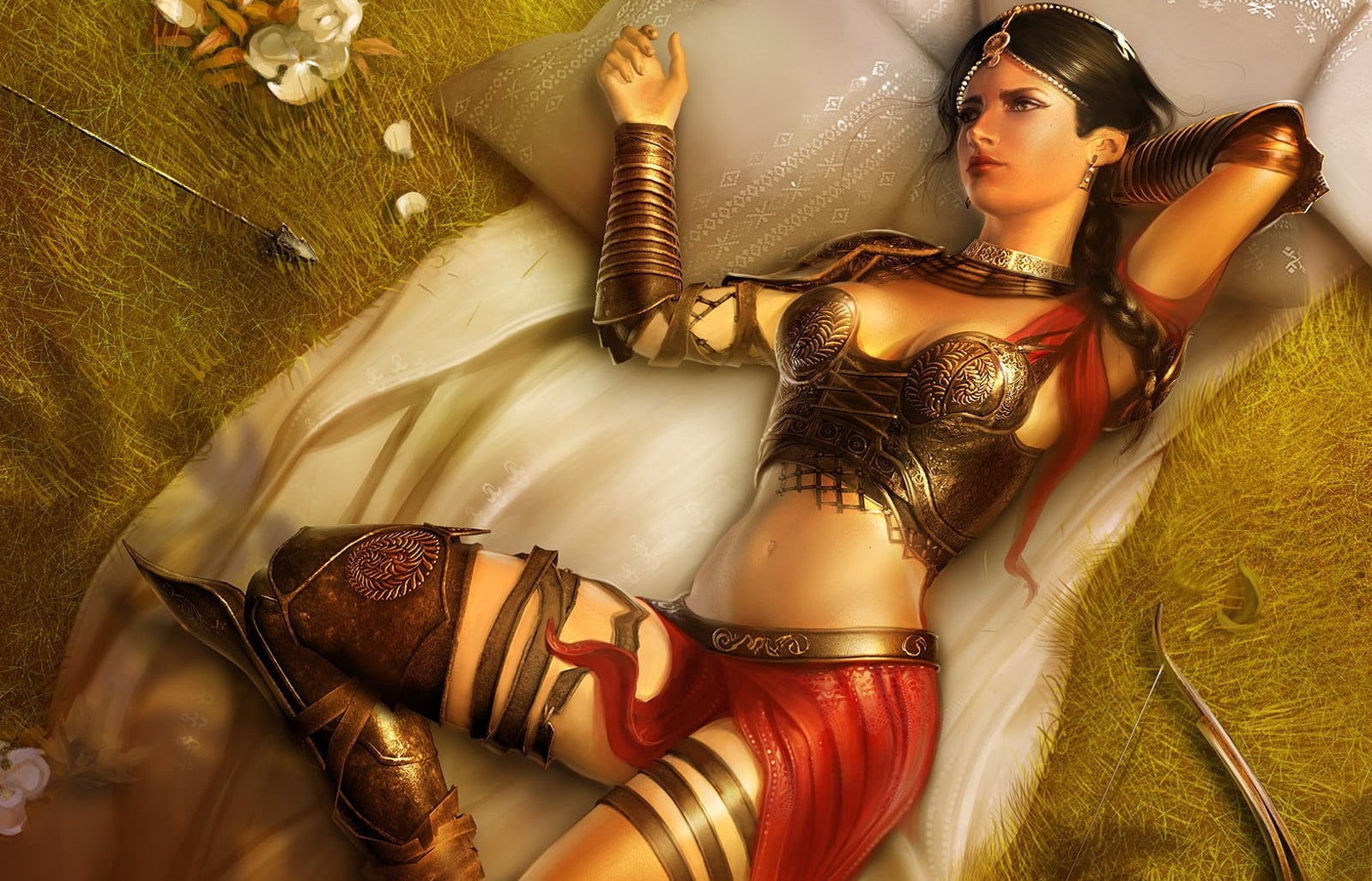

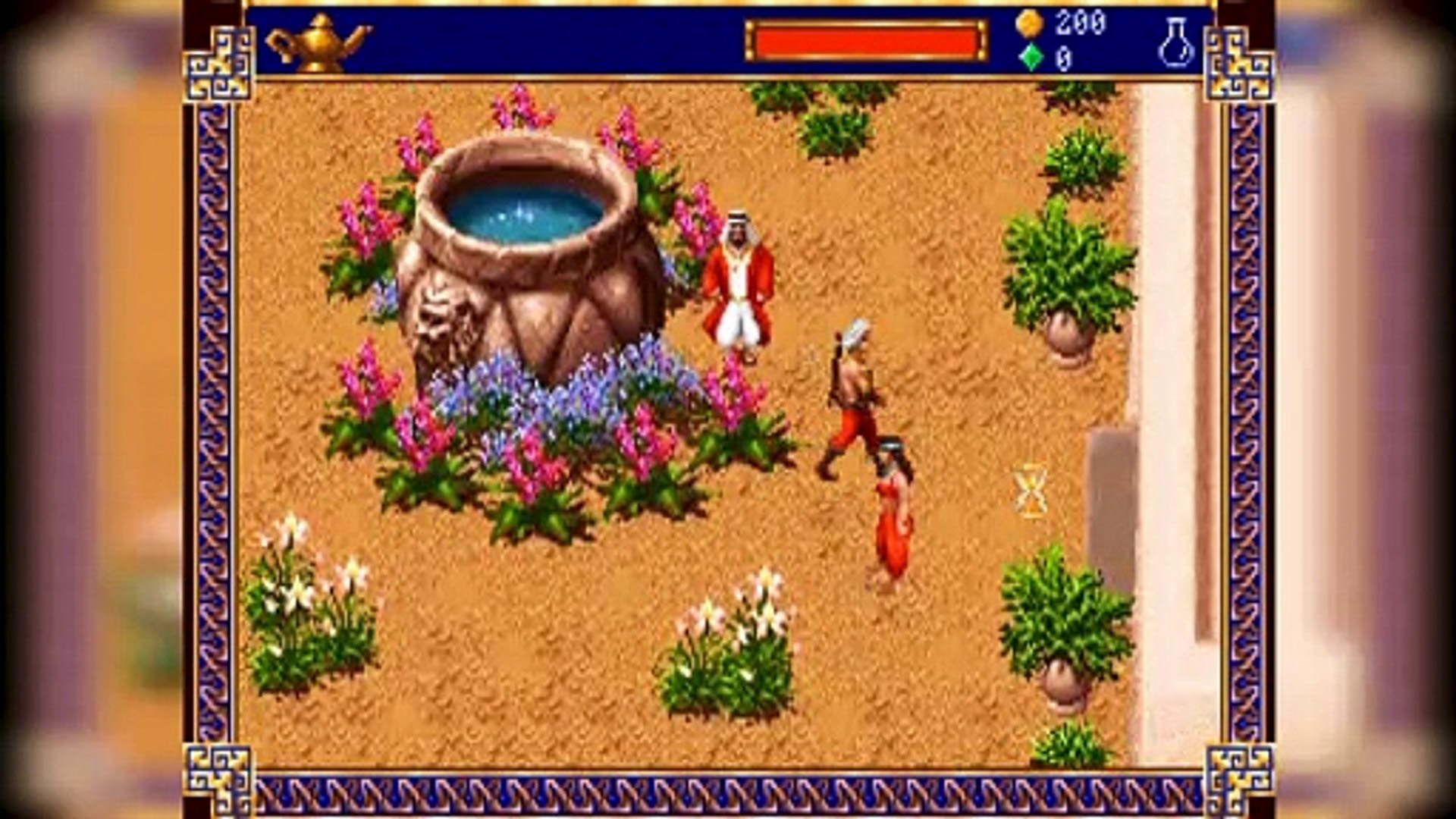
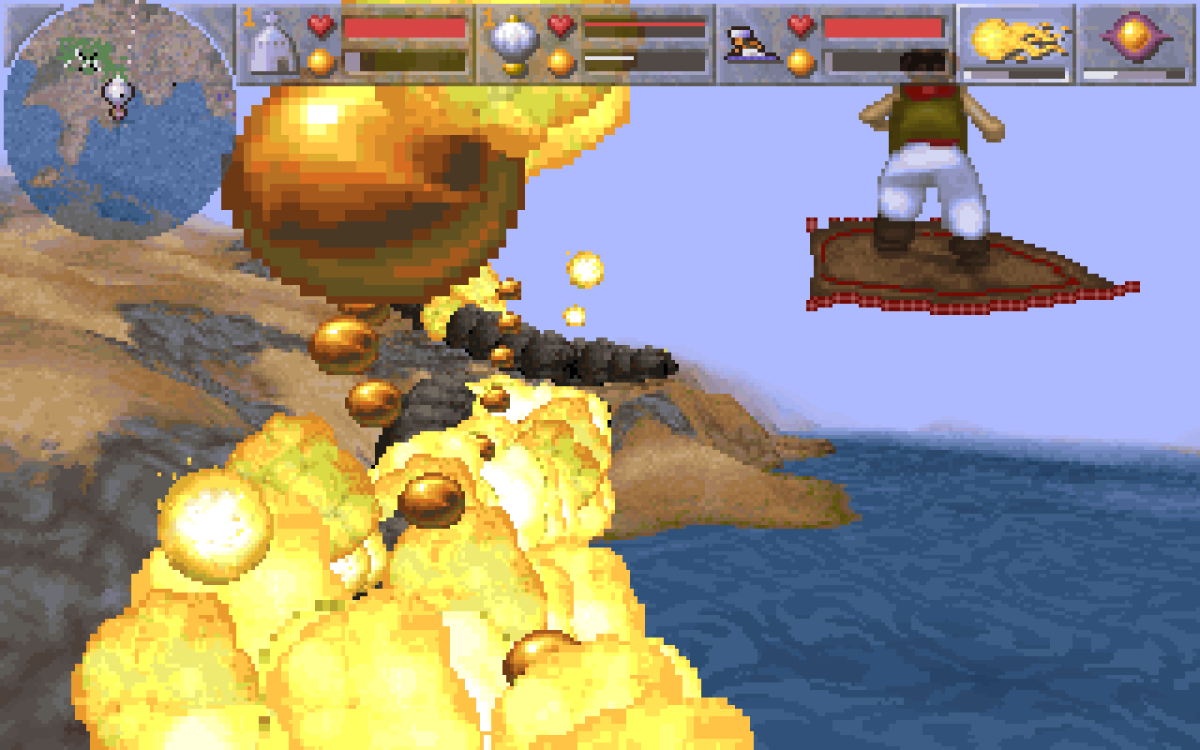
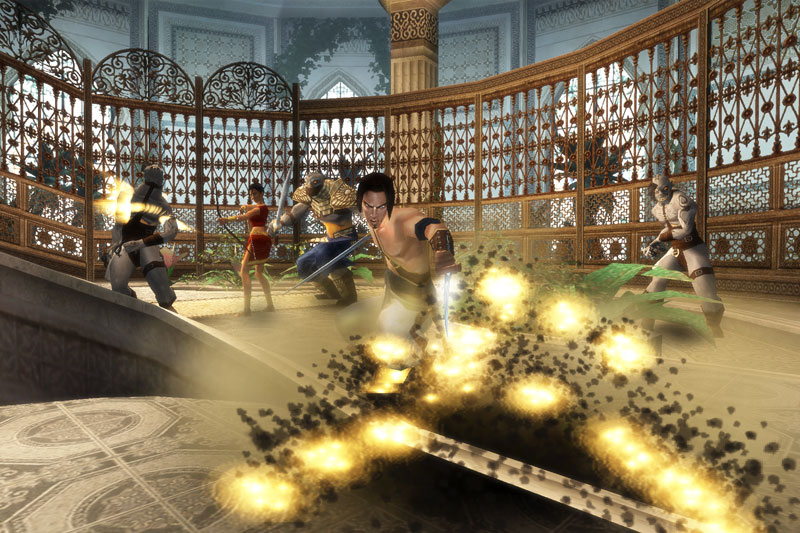
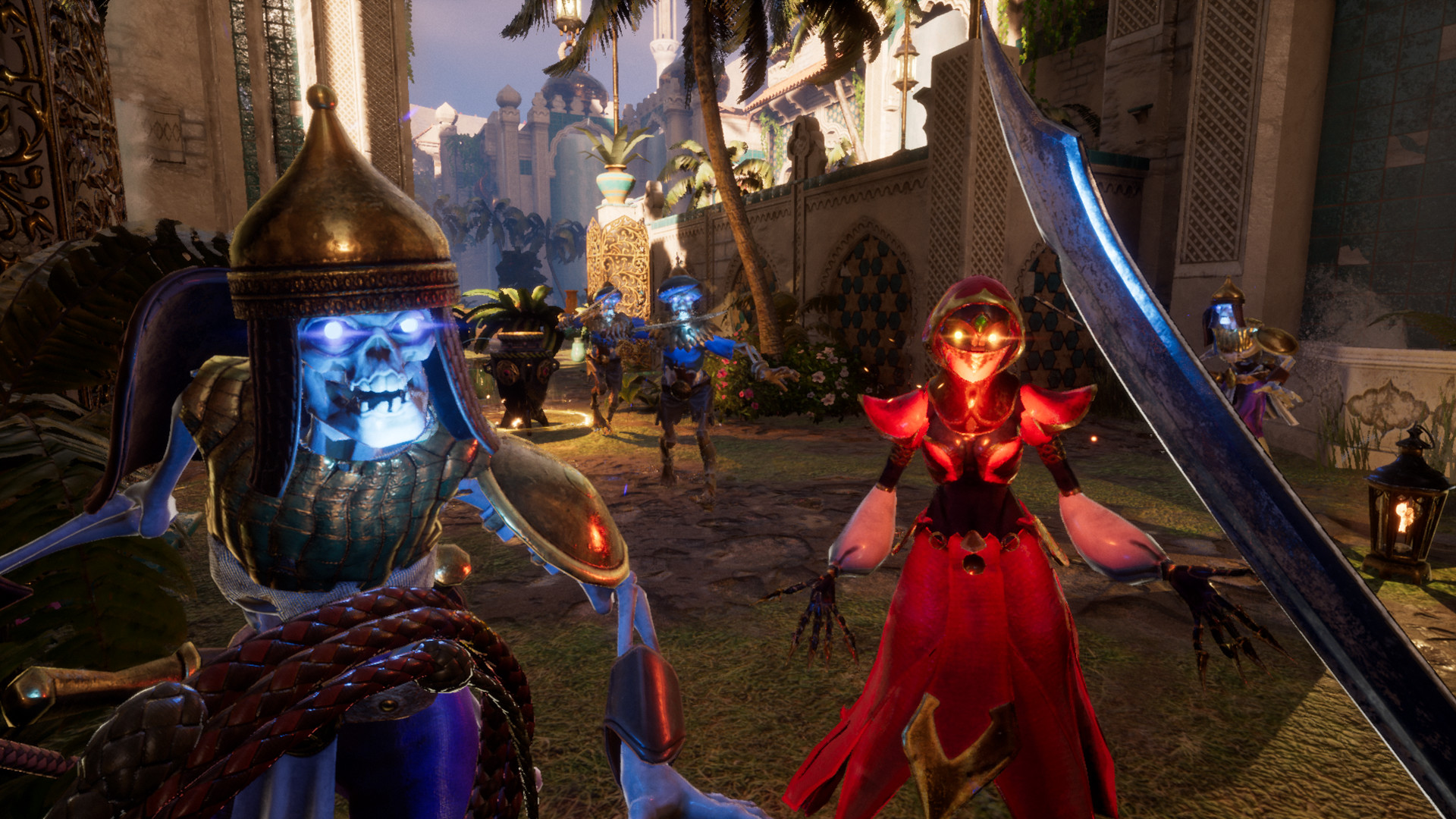
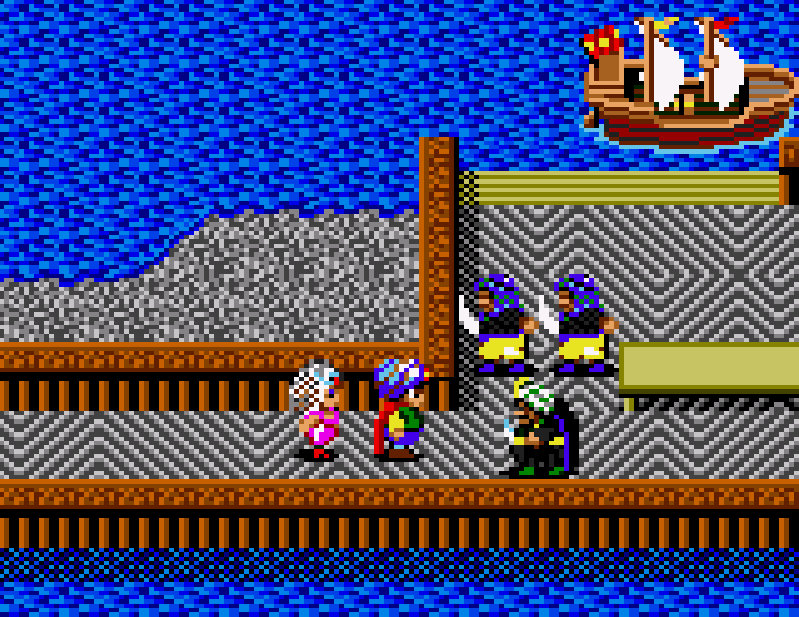


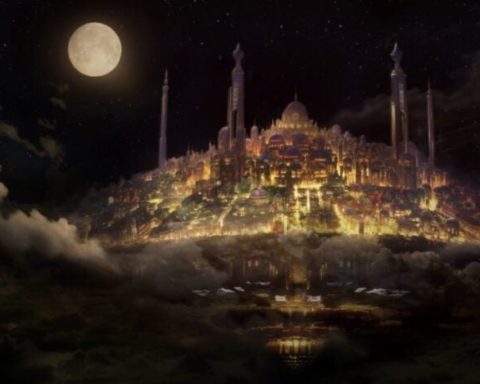
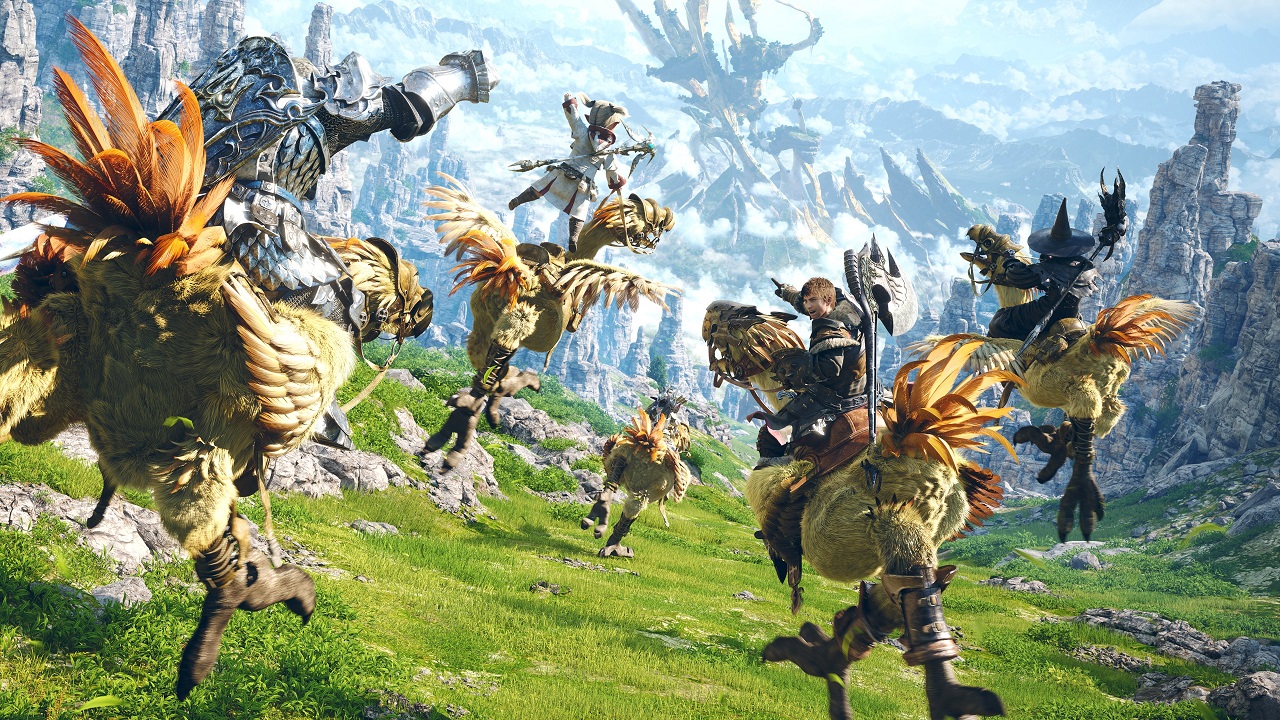



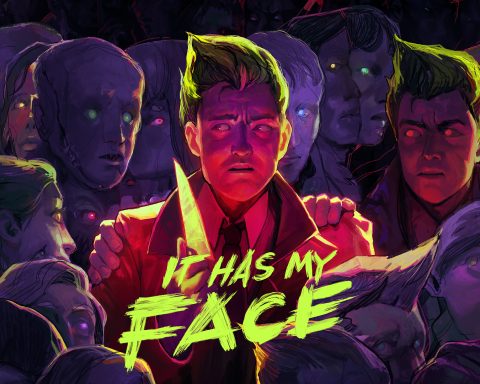


I love these segments so much. The idea to build a top-ten list around a specific theme or setting is great. Just what I need when I’m craving for a certain vibe I want to surround myself with (which I so often do).